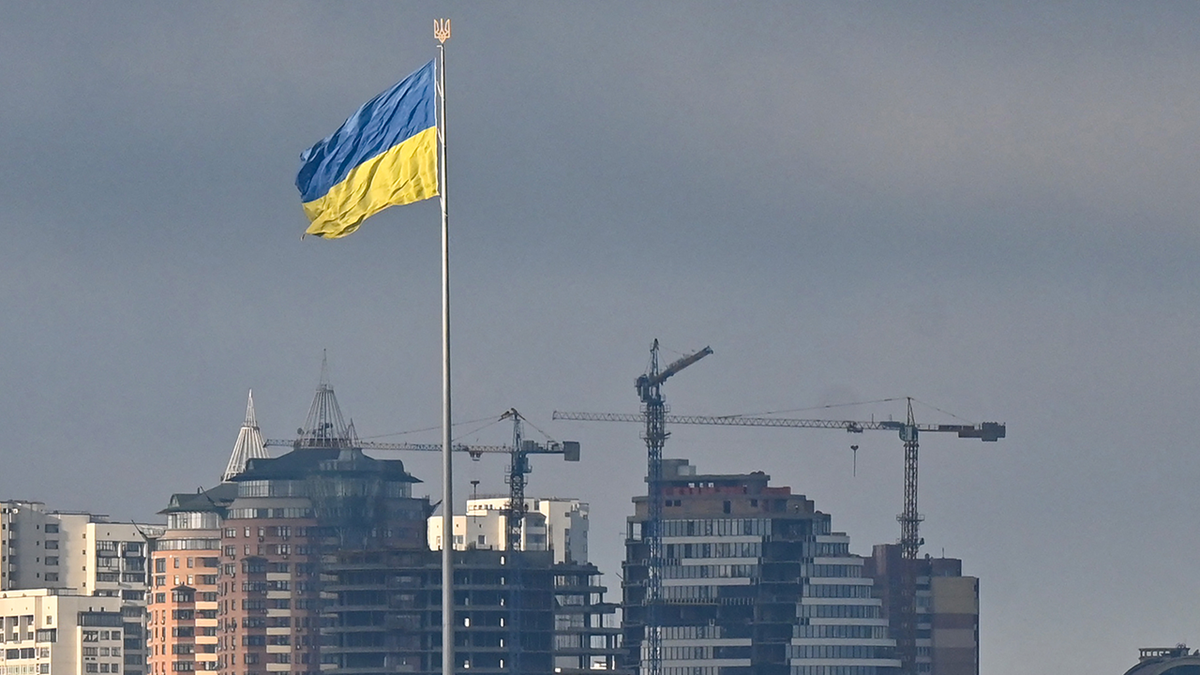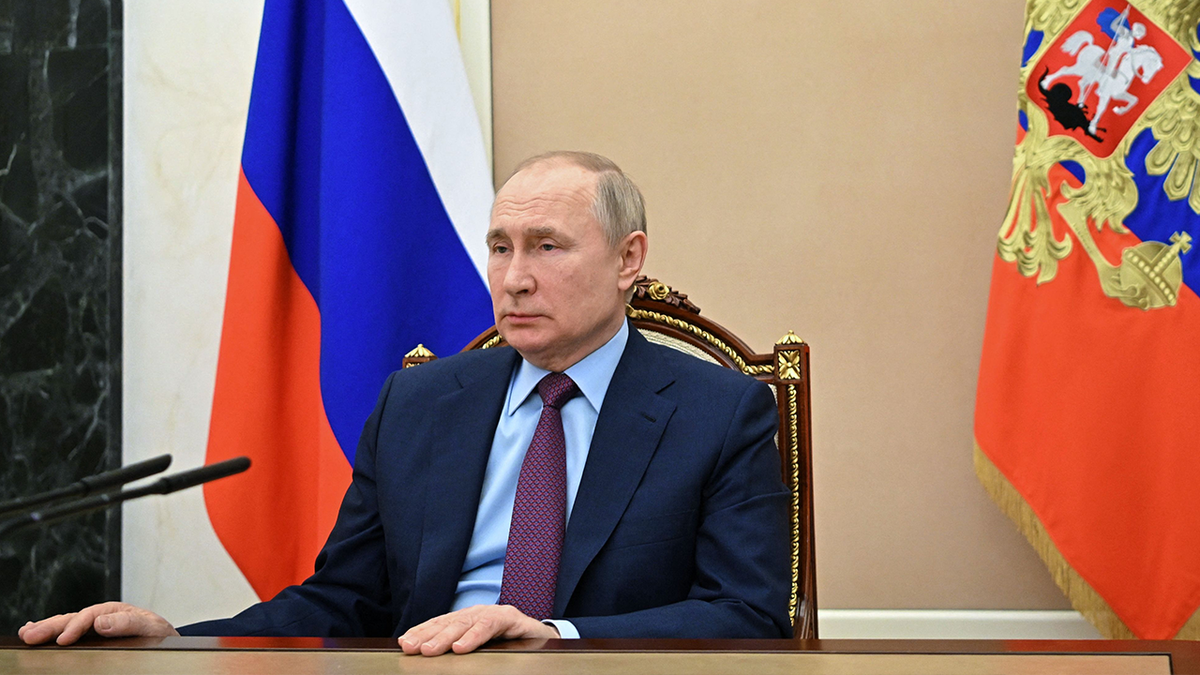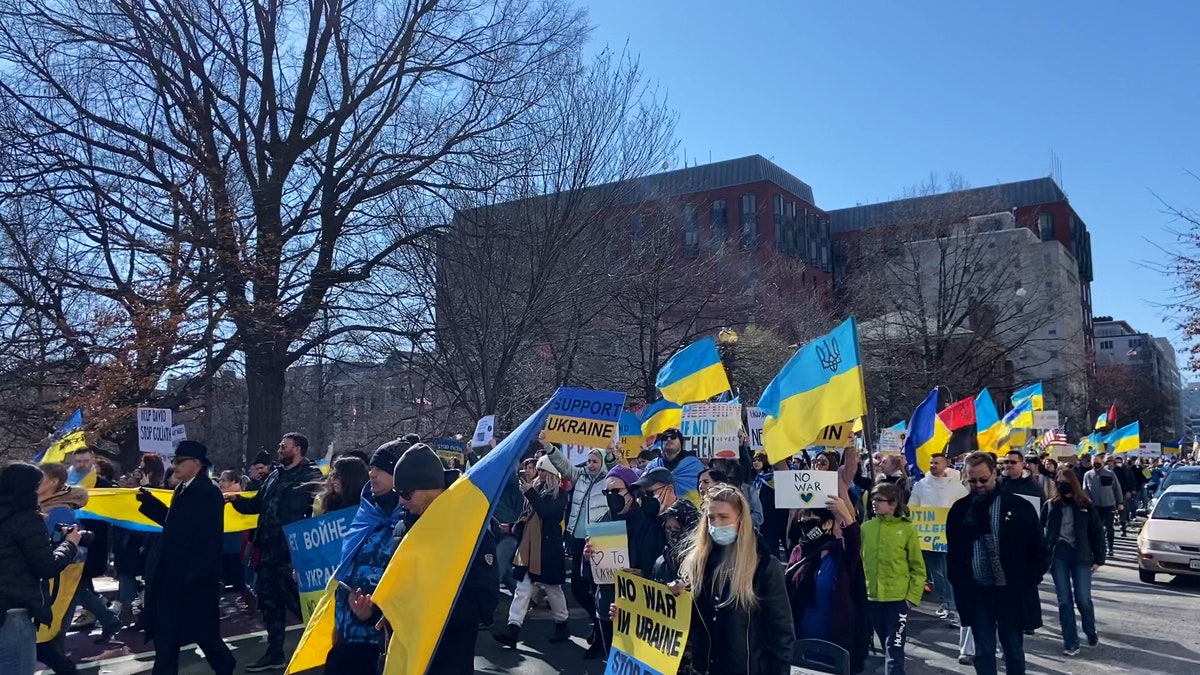Ukraine war map: What Russia has taken and is eyeing next
Bill Hemmer breaks down the Russian occupation of South Ukraine and where Vladimir Putin may move next.
As Russia’s war with Ukraine enters its second week more than 1 million refugees are spilling over the Western European embankment. It is the region's largest conflict since World War II and it has kicked off a wave of panic and anxiety that has spread across the globe.
This is likely what Putin wants.
Why?
RUSSIA INVADES UKRAINE: LIVE UPDATES
Let’s take a look.
Russia has the military resources (conventional and asymmetric) to secure Ukraine decisively and quickly.
This hasn’t happened. Here are three theories why:
1. Putin is pushing the pawns around like a chess master to ratcheting up the pressure and tension to strengthen his negotiating position.
By annexing the strategically important areas of Ukraine like Sevastopol in Crimea and rending the rest as an unarmed vassal state completely dependent on Russia for security Putin creates a Texas-sized buffer zone against an imagined future attack by NATO.
In this imagined war, most of the fighting and the resulting devastation would occur on the wide steppes of Ukraine rather than in Russian territory. The Dneiper river also makes for an ideal natural line of defense to stop a NATO army marching on Moscow.
2. Putin’s senior military leaders have bungled what could have been a quick victory and power grab.
They bought into their own propaganda that Ukraine and its people saw themselves as culturally Russian and wanted to be a part of Western Europe rather than a Russian-dominated East.
BIDEN SHOULD SPEAK DIRECTLY TO RUSSIAN PEOPLE, ASK THEM TO DENOUNCE PUTIN'S UKRAINE WAR
They believed that they would walk into the country and be greeted as liberators from the pro-Western Zelensky government.

Ukraine's biggest national flag flies in Kyiv on Feb. 26, 2022. ( )
For this reason, they employed an armed force intended for a soft occupation rather than his most capable combat units. They also underestimated the will of the people of Ukraine to resist forced assimilation into the Russian sphere and the ability of their own troops to go from the mindset of, "We saving Ukraine!" to, "We are conquering Ukraine!"
Chechnya is just about two-thirds the size of New Hampshire and Russia fought a nearly 20-year war trying to prevent its independence after the Soviet Union broke up in 1991.
There are many Ukrainians living in Russia and vice versa, this war has a stain of fratricide on it.
3. Putin deployed his military on the border expecting that the threat of invasion would scare Ukraine and the West into submission to his demands and when it didn't work his generals devised an ad hoc invasion to make good on their threat.

Russian President Vladimir Putin attends a meeting with Russian Defence Minister Sergei Shoigu at the Kremlin, in Moscow on Feb. 14, 2022. (Alexei Nikolsky/Sputnik/AFP via Getty Images)
He ended up attacking with an understrength force in less than ideal weather with the results you are seeing on television with lots of casualties, and frustratingly slow progress.
HELPING UKRAINE REFUGEES: NON PROFIT PROVIDES EMERGENCY WATER ACCESS FOR THOSE IN NEED
The first scenario about is the most likely scenario given Putin’s record as a cold and calculated leader who has ambitions to restore Russia to its USSR size and glory. However, in just about any of these scenarios Ukraine is very likely to win in the end
How come?
Because wars in this part of the 21st Century are no longer conventionally fought and won with the traditional army of tanks planes and infantry fighting battles. They are dispersed, asymmetric, and happen in the shadows of city streets and on the internet.
An interconnected economy means Putin faces sanctions in a modern world where global banking and supply chains can be turned off with a keyboard click rather than bombers destroying his factories and railroads and submarines sinking his merchant ships to cripple his ability to make war.
ZELENSKYY SAYS IT'S A 'PITY' US SUPPORT CAME 'AFTER' RUSSIAN WAR BEGAN
History has also taught us that a small motivated insurgency can outlast and beat back a much larger adversary. It’s why guerrilla warfare occurs so often in the world today. It’s because it works.
A country like the United States may be able to extend the length of an insurgency but as we saw in Vietnam, Afghanistan, and Iraq, they are all but impossible to defeat.
The only way is to occupy the entire country with a massive force that will get the edges dulled from a fiercely loyal insurgency with purpose (repel Russia). You then have to take complete control the food, water, electricity and heat for the entire population, so that you can strangle them for aiding the insurgency.
It's a brutal, medieval way of war and typically the harder it gets on the population, the more the insurgency forges into hard steel.
Chechnya is just about two-thirds the size of New Hampshire and Russia fought a nearly 20-year war trying to prevent its independence after the Soviet Union broke up in 1991.
CLICK HERE TO GET THE OPINION NEWSLETTER
Conventional military operations lasted a year and then there was a nine-year active insurgency followed by a low-level insurgency that only ended in 2017. Upwards of 250,000 people died. Russia admitted to losing some 6,000 Russian soldiers but the actual number may be much higher.
Ukraine by comparison is the size of Texas and has a population of 44 million who so far have fought with great bravery and determination and may have inflicted as many as 3,000 casualties on Russia, in a week. The amount of damage a small determined insurgency can do was apparent to me when I was a young sniper on board the USS Cole, doing overwatch, noticing how two terrorists in a small boat almost sank a billion-dollar warship while it was in port.
In the long grinding war of an insurgency, Russia faces years of killing Ukrainian civilians and insurgents along with the deaths of thousands of Russian soldiers. Given the number of Ukrainians living in Russia, its own territory is likely to see terrorist attacks again just as they also occurred during the Chechen conflict.

Thousands of Ukraine supporters marching to the White House. ( )
Putin’s only real choice is to push hard-lined negotiations followed by a complete force withdraw or risk being sucked into a dystopian war. His reputation, legacy, and the perception of Russia as a major power is at stake here, and pulling back bloody and beaten by Ukraine would be a devastating blow to all.
CLICK HERE TO GET THE FOX NEWS APP
The die is cast and Russia will have to learn again the hard way about the modern way of insurgency warfare in the 21st century.
This is why Ukraine eventually wins an irregular war but at what cost is yet to be seen.





